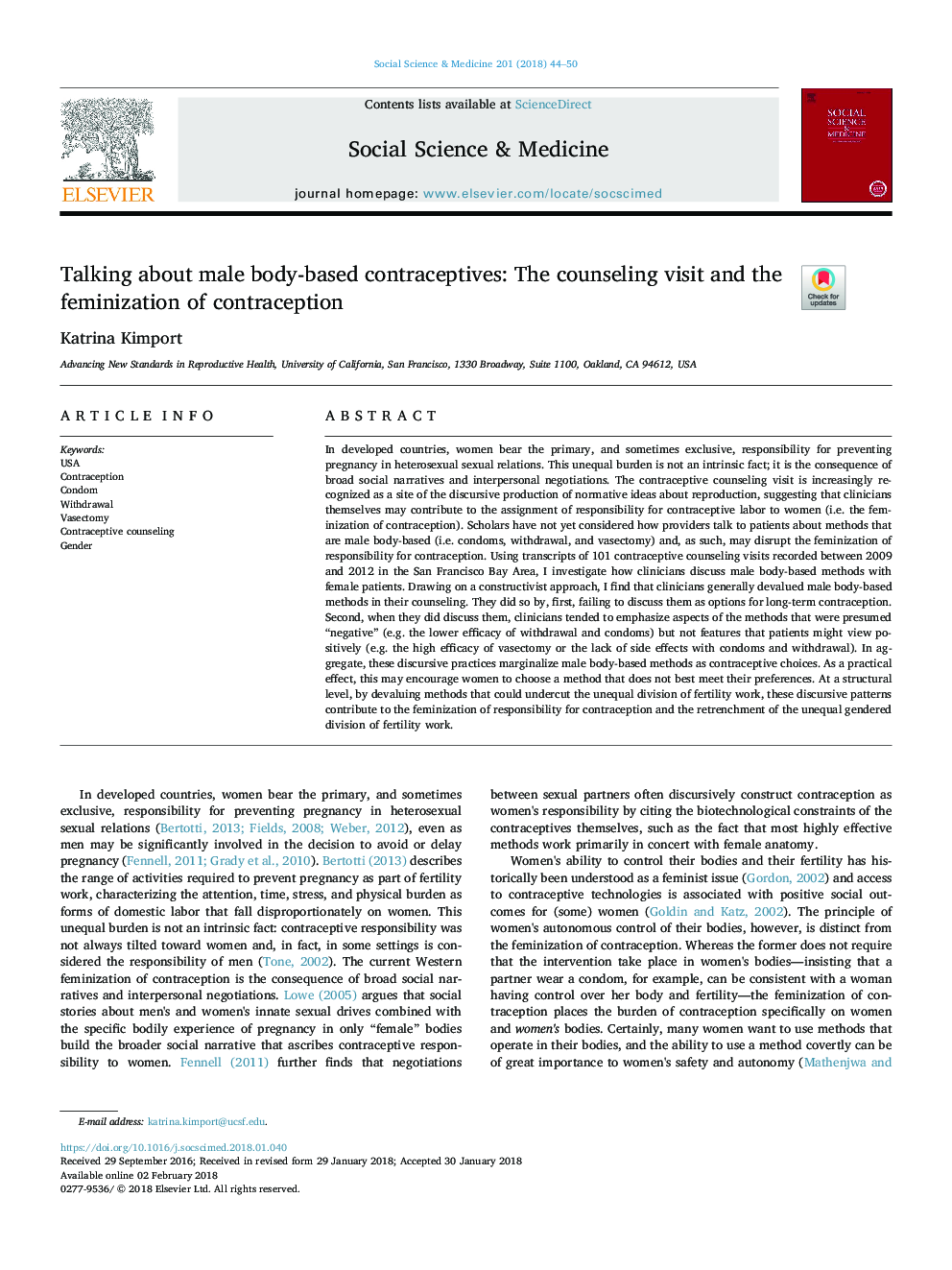| کد مقاله | کد نشریه | سال انتشار | مقاله انگلیسی | نسخه تمام متن |
|---|---|---|---|---|
| 7328296 | 1475968 | 2018 | 7 صفحه PDF | دانلود رایگان |
عنوان انگلیسی مقاله ISI
Talking about male body-based contraceptives: The counseling visit and the feminization of contraception
ترجمه فارسی عنوان
صحبت کردن درباره پیشگیری از بارداری مبتنی بر بدن مرد: دیدار مشاوره و فمینیستی از روش های پیشگیری از بارداری
دانلود مقاله + سفارش ترجمه
دانلود مقاله ISI انگلیسی
رایگان برای ایرانیان
کلمات کلیدی
ایالات متحده آمریکا، پیشگیری کاندوم برداشت از حساب، وازکتومی، مشاوره پیشگیری از بارداری، جنسیت،
موضوعات مرتبط
علوم پزشکی و سلامت
پزشکی و دندانپزشکی
سیاست های بهداشت و سلامت عمومی
چکیده انگلیسی
In developed countries, women bear the primary, and sometimes exclusive, responsibility for preventing pregnancy in heterosexual sexual relations. This unequal burden is not an intrinsic fact; it is the consequence of broad social narratives and interpersonal negotiations. The contraceptive counseling visit is increasingly recognized as a site of the discursive production of normative ideas about reproduction, suggesting that clinicians themselves may contribute to the assignment of responsibility for contraceptive labor to women (i.e. the feminization of contraception). Scholars have not yet considered how providers talk to patients about methods that are male body-based (i.e. condoms, withdrawal, and vasectomy) and, as such, may disrupt the feminization of responsibility for contraception. Using transcripts of 101 contraceptive counseling visits recorded between 2009 and 2012 in the San Francisco Bay Area, I investigate how clinicians discuss male body-based methods with female patients. Drawing on a constructivist approach, I find that clinicians generally devalued male body-based methods in their counseling. They did so by, first, failing to discuss them as options for long-term contraception. Second, when they did discuss them, clinicians tended to emphasize aspects of the methods that were presumed “negative” (e.g. the lower efficacy of withdrawal and condoms) but not features that patients might view positively (e.g. the high efficacy of vasectomy or the lack of side effects with condoms and withdrawal). In aggregate, these discursive practices marginalize male body-based methods as contraceptive choices. As a practical effect, this may encourage women to choose a method that does not best meet their preferences. At a structural level, by devaluing methods that could undercut the unequal division of fertility work, these discursive patterns contribute to the feminization of responsibility for contraception and the retrenchment of the unequal gendered division of fertility work.
ناشر
Database: Elsevier - ScienceDirect (ساینس دایرکت)
Journal: Social Science & Medicine - Volume 201, March 2018, Pages 44-50
Journal: Social Science & Medicine - Volume 201, March 2018, Pages 44-50
نویسندگان
Katrina Kimport,
